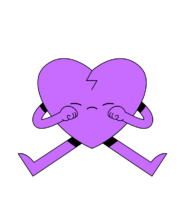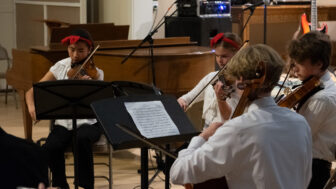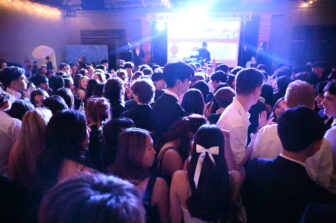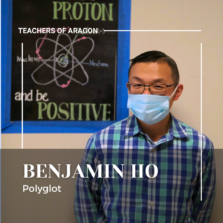Alameda Darkmeat. That name meant dominance, and near perfection. It meant constant excellence at the state tournament, and a terrifying presence on the field. It seemed like their leader, Adam Rees, could catch any disc within miles of him, and their best handler, Aaron Hom, could throw the length of the country. Lining up across from them, alongside my Disception teammates on a field in San Jose, I pushed down my fear of this powerhouse and got ready to play a game of Ultimate.
Ultimate—sometimes called Ultimate Frisbee—is a simple game. Teams play seven on seven, on a slightly narrowed football field. One team tries to move the disc down the field by passing it to teammates, and a score is made by catching it in the end zone. If the disc hits the ground, is intercepted, or lands out of bounds, it’s a turnover and the other team takes possession. Unlike most other sports, there are only two real positions: handlers and cutters. Handlers are the better throwers, and they run the offense while cutters run down field, acting like receivers in football.
What makes Ultimate truly unique is its rule system. Every foul in Ultimate is called by a player. Disputes are settled by discussion, often resulting in a do-over. Referees do not exist; instead, all of the rules are based around a guideline of mutual respect, lovingly called “Spirit of the Game.”
To so many people, Ultimate doesn’t deserve the recognition countless other sports are given. Even people who have played it call it “Frisbee.” There is no sport named “Frisbee,” because Wham-o trademarked the term. To avoid being sued, the name of the game is simply “Ultimate,” and we play with “discs,” not Frisbees.
People simply don’t think Ultimate is a sport. From when my track coach told me, “I don’t consider Frisbee to be a real sport” (again, it’s called Ultimate) to when my Government teacher, Scott Silton, told me I couldn’t represent Ultimate in a class exercise on simulating a caucus on sports, my beloved game fails to be thought of as anything more than a joke. This has a whole lot to do with the types of people populating the game.
Ultimate players are goofballs. They play for the sheer joy of playing and are able to turn absolutely anything into a game, from getting a Gatorade bottle into a trash can to visiting Super Target. One of the things I love about Ultimate is that it’s flat out fun to play. Competing in different tournaments, I have played wearing a Sherlock Holmes hat alongside a guy I only remember as “Choppa.” Each season, Disception strives to win a cattle skull at a tournament called the Spaghetti Westerns. I once played for a team called the Happy Cows, and we lost to a team that was made up of people wearing neon orange tights. What other sport can do anything like that?
This joyous silliness is the first thing I fell in love with about Ultimate. I have played sports my entire life, and I never had the level of pure happiness I found with Ultimate. But while this lighthearted side greatly contributes to Ultimate’s reputation, it’s only a part of what the game really means. As I learned that day in San Jose, there is so much more to Ultimate than just fun.
While still keeping a lighthearted attitude, some teams maintain a level of professionalism that wouldn’t be expected in a game such as Ultimate. Darkmeat, one of those teams, is supported by Alameda High School, where it is a sport as real as football. At schools like this, the Ultimate team does track workouts for conditioning along with their regular practices. For this tournament, they had about 18 players show up in matching uniforms. They even had a cameraman to film them play.
My team stood in stark contrast, a rare occasion when most of us were actually wearing our purple jerseys. Disception is a club team, founded by myself and several friends when we were unable to start a team at Aragon. At the practices we have once a week, about 12 people show up on a good day. We had eight people playing at this all-day tournament, one substitute for nearly five hours of playing.
Despite these drastic differences, the game was close to the bitter end. We jumped ahead early, but they came roaring back, and tied it five to five. The time cap was called, bringing the game to Universe Point. Universe Point is sudden death, so whoever scores, wins. It’s called Universe Point because that’s how important it is to the players: the fate of the universe is at stake.
That final point went back and forth, both teams committing turnovers. Ultimately, my good friend Jared Dilibero ended it, blasting into the end zone and clamping his hands around the disc. Instant bedlam. We swarmed Jared, screaming like crazy people, pounding him on the back and jumping. Beating Darkmeat was mind-boggling, as unthinkable as it must have been for the British to have lost to the colonists. As we formed our ragged circle for post-game stretching and de-cleating, I almost started crying. We won. We had conquered our rival.
That moment, sitting there stupefied with joy, was when I realized just how much Ultimate meant to me, and that it no longer mattered what anyone else thought about it. This passion, this desire, is what elevates Ultimate to the ranks of sports. Its players care about the outcome, regardless of how anyone else feels. This past summer, I played in a National Youth Tournament in Minnesota. When I got back to school, I knew that no one would know what I had played. When I first started playing, this would have frustrated me, insulting my beloved game. But I’ve learned to move past this, and to be confident in my own love of the game, disregarding the opinions of those who don’t play and don’t understand just how much Ultimate means to me.
The University of North Carolina’s women’s soccer coach Anson Dorrance once said, “The vision of a champion is bent over, drenched in sweat, at the point of exhaustion, when nobody else is looking.” I cannot think of a better example of this than an Ultimate team. We play as hard as we possibly can for our own satisfaction. There is no thrill of the crowd cheering, or scholarship offers, or even the Olympics to shoot for. There is only the desire to compete, and to win for your teammates, and for me, this is the purest kind of sport.






